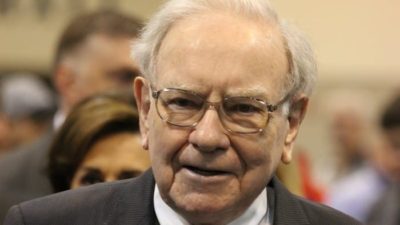At some point, you have to just admit it.
Yep, even the professionals.
Even the ones who've been doing this for years.
So it's my turn.
I. Was. Wrong.
Thing is, I'm still not sure why. I mean, it's not the first time I've been wrong.
It sure as hell won't be the last.
But it still hurts.
The company in question, this time, is financial services mob, Challenger. It's the business that, among other things, has a dominant market share in annuities.
(For the uninitiated, annuities are products sold to people who want to swap their lump sum for a regular income stream instead — essentially giving up some potential upside in exchange for not needing to sweat on market volatility — usually in retirement.)
When we recommended members of Motley Fool Share Advisor buy Challenger shares, the thesis was pretty simple.
There are greater numbers of people retiring than ever in Australia.
The scars of the GFC were — are — deep and raw for them.
Financial planners, in general, tend to love annuities.
And the return offered to Challenger's annuity customers was sufficiently low that the company should have had more than enough margin to play with.
So, a top-notch brand, good margins, and a growing customer base egged on by their financial advisors…
Should've been a lock.
And yet…
And yet, earnings didn't go anywhere for a decade.
(They went negative in 2020 actually, but that's an understandable exception.)
Yes, falling interest rates didn't help.
But those tailwinds.
Those (expected) margins.
In the event, we probably held on too long.
But it was one of those situations where the logic just seemed pretty straightforward.
So we — I — waited for the thesis to play out.
And waited.
And waited.
In the end, it was a chat with the team that ended up determining the fate of the recommendation.
I — again — explained why Challenger should be a great company.
Should achieve great results.
Should be a great recommendation.
I still think the logic is sound.
And yet, as Yogi Berra (might have) said, "In theory, there is no difference between theory and practice. In practice there is".
Even as I was explaining it to the team, I was mentally asking myself a version of that statement.
"If you're so right, where are the results?"
Now, I'm no stranger to being patient.
Some of my best recommendations have taken time to really hit their straps. Others have been volatile, falling before they rose, and went higher.
So, I don't mind waiting, if the results are going to come.
But how long do you wait?
How long can you suspend disbelief… or at least suspend the growing feeling that theory and practice were diverging, with no signs of the gap getting smaller any time soon?
In the end, reality always wins.
And so, we decided to recommend our members sell their Challenger shares.
Now, that doesn't mean that, thanks to Murphy's Law, the business performance won't suddenly improve.
Anything could happen from here.
But there's just insufficient evidence to say it's likely.
And at some point, you just have to call time on an idea.
Was the thesis wrong? Maybe.
Did business circumstances change? Probably.
Is this an execution problem that could be fixed? It's possible.
But, just as insanity is often described as 'doing the same thing and expecting a different result', at some point you've gotta just admit defeat on an idea.
It's important, though, to remember that I haven't talked about the share price, thus far.
Because that had nothing to do with our decision.
The share price simply tells you what the market is thinking, not how a business is performing.
And those are — hopefully obviously — two different things.
That doesn't mean they can't be saying the same thing, sometimes.
But they're not a perfect proxy for each other.
And that's important.
We've made winning recommendations whose shares stayed underwater for a long time.
We've had losers that got off to wonderful starts, but then crashed and burned.
And lots in between.
To beat the market, you have to do something different to the market.
That means you need to ignore what it's 'telling' you, and start using its wild swings to your advantage.
And, it means selling when your thesis is not likely to play out (regardless of the reason).
It's true that one of my guiding maxims is 'be slow to buy and slower to sell'.
But that's not "… and never sell".
Or, to invoke a well known (and much loved) piece of advice: "you've gotta know when to hold 'em, and when to fold 'em".
Challenger has had a chance.
Actually, a lot of chances.
But it was time to pull the pin.
I am glad to say it's generally the exception. Most of our recommendations are market-beating.
And our average is soundly above the ASX, too.
So we're doing something right.
(Though, as the lawyers — rightly — ask us to point out, past performance is no guarantee of future success.)
But it's a reminder that not everything will go well.
And that, after enough chances, sometimes you just have to call an investment a loss and move on.
To hopefully bigger and better things.
Just remember: you make those calls, not the market.









